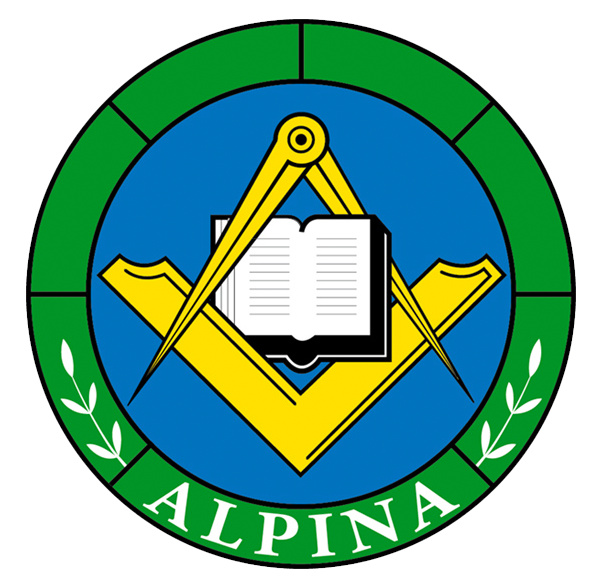General Principles of the Swiss Grand Lodge Alpina
| I. | Freemasonry is an association of free men which has its origins and customs dating from the stone masons’ guilds of the Middle Ages.
The regulations of those guilds, preserved in various charters, especially in “The Constitutions of the Free-Masons” from 1723 and in certain ceremonies, still serve today as a means of education and improvement of its members. |
| II. | Freemasons consider each other as “brothers” and consider this alliance as a fraternity. They know that all men, no matter what their talents and their social standing, are born with the same rights.
They also know that this truth often fails to be recognized in everyday life, and therefore consider it as their duty to awaken and practice a fraternal spirit amongst themselves and towards other people. |
| III. | The purpose of Freemasonry is the development of its members in the practice of humanitarian principles.
The methods used are : using symbolism borrowed from the stone masons; mutual instruction on humanitarian principles; promoting ideals and inculcating true friendship and brotherly love; fulfilling one’s social responsibilities and by practicing charity. Additionally, Freemasonry endeavours to promote its principles in the outside world, to promote (as its means allow) education and general enlightenment; to support institutions for the common good and, if needed, to found such, and to oppose intolerance. |
| IV. | Freemasonry honours as the highest authority the ‘Grand Architect of the Universe’ * (* a Masonic term for the ‘Supreme Being’, called ‘God’ in the Christian religion).
It asserts freedom of conscience, of religion and of thought, and rejects all constraints to these freedoms. It respects all sincere religious convictions and rejects all persecution of those with other opinions. In accordance to its ancient customs, the ‘Volume of Sacred Law’, the Square and the Compass, the ‘three great lights’ in Freemasonry, figure prominently during the ritual ceremonies. |
| V. | A Freemason is faithful to his own country and does all in his power to ensure a peaceful society there and in the country where he lives..
Faithful to Freemasonry’s traditions, he works to ensure the respect of human rights. Putting Masonic principles into practice, each member should participate and be active in public affairs, according to his personal convictions, to best promote the prosperity and well-being of his country and the country where he lives. |
| VI. | The Lodge is a peaceful and neutral place where the contradictions and emotions of everyday life have no place.
While meeting, the members do not discuss political or religious questions which could lead to controversy. Outside of formal meetings, and on an educational level, members may exchange views on such questions. These discussions may however never be the subject of any vote or resolution which would in any way hinder its members’ personal freedom. |
| VII. | Without distinction as regards religious belief, race, nationality, political party or social standing, Freemasonry admits free men of good repute who want to unite fraternally in working towards self improvement.
Although formal recruitment of new members is not permitted, members may give discreet information about the nature and purpose of Freemasonry to other men who appear suitable to become members. |
| VIII. | A Freemason is obliged to faithfully observe the regulations of the Grand Lodge and the bylaws of his own Lodge, the honour and interests of which he should defend and promote to the best of his ability.
A member may freely resign at any time, where personal convictions and circumstances so dictate. |
